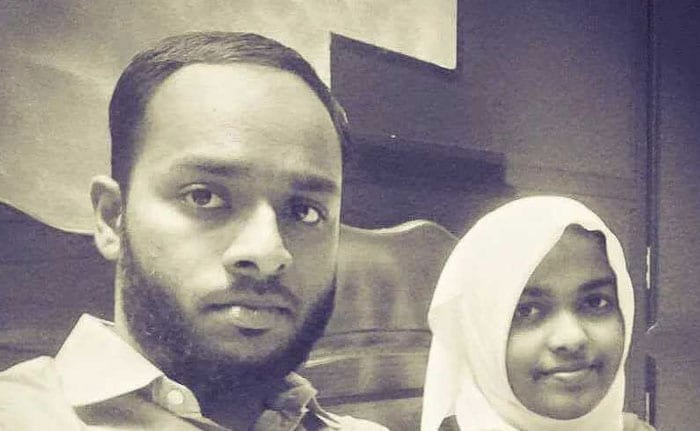
The Left-led government told the court that the state police was competent to conduct such investigations.
In an affidavit filed in the court, the state also underlined that the anti-terror agency National Investigation Agency, or NIA, did not have the mandate to carry out such investigations under the law that set up the agency to fight terrorism.
Shafin Jahan, 27 had approached the Supreme Court against a high court verdict that annulled his marriage to a trained homeopath, Akhila Ashokan, who took the name Hadiya after converting to Islam.
The high court had agreed with Hadiya's father KM Ashokan that his daughter did not know what was best for her. Mr Ashokan had also claimed that Shafin Jahan, 27, has links to the ISIS.
In August, a bench of the Supreme Court headed by then Chief Justice JS Khehar too appeared to agree as it ordered the National Investigation Agency to ascertain if it was a case of some Muslim extremist groups radicalising a Hindu woman and recruiting them for terror groups.
For right-wing groups in Kerala and elsewhere, the 24-year-old came to become the face of love jihad; the term coined by them to allege an Islamist strategy to convert Hindu women via first romance and then marriage.
On a visit to Kerala this week, Uttar Pradesh Chief Minister Yogi Adityanath had also cited this case to accuse the Left-led government of not taking steps to check a "dangerous trend like love jihad".
This week, the new Supreme Court Chief Justice Dipak Misra appeared to have doubts about this line. A 24-year-old woman "cannot be controlled by her father", Chief Justice Dipak Misra observed at the hearing on Tuesday.

In a affidavit filed before the top court, the Kerala government said the police had already probed all aspects on this case and found no evidence to indicate that the woman's marriage was a case of so-called love jihad.
The state government also cited the judgment of the Kerala High Court, pointing that the high court, which had annulled the marriage, had not found any evidence to indicate that she had been coerced.
Back in 2016, the NIA did start a probe against members of a radical outfit Popular Front of India (PFI) for an organised effort to lure a woman to convert to Islam. Four people were arrested by the Kerala police in this case.
One common link between this case and Akhila Ashokan's marriage was that one of the suspects in the PFI case and Muscat-based Shafin Jahan were members of the same Facebook page. But investigators were not able to directly link Shafin Jahan.
Track Latest News Live on NDTV.com and get news updates from India and around the world

